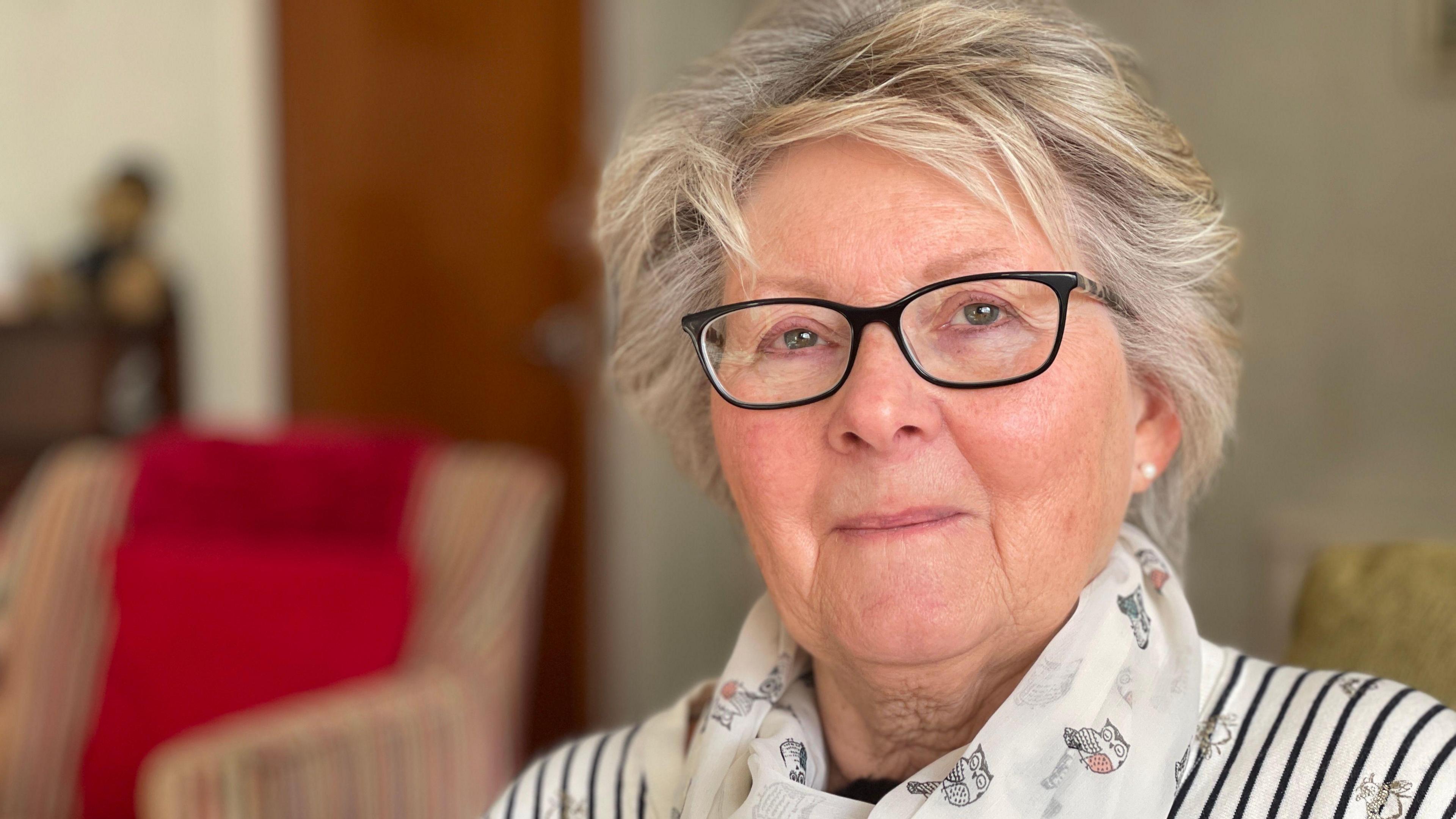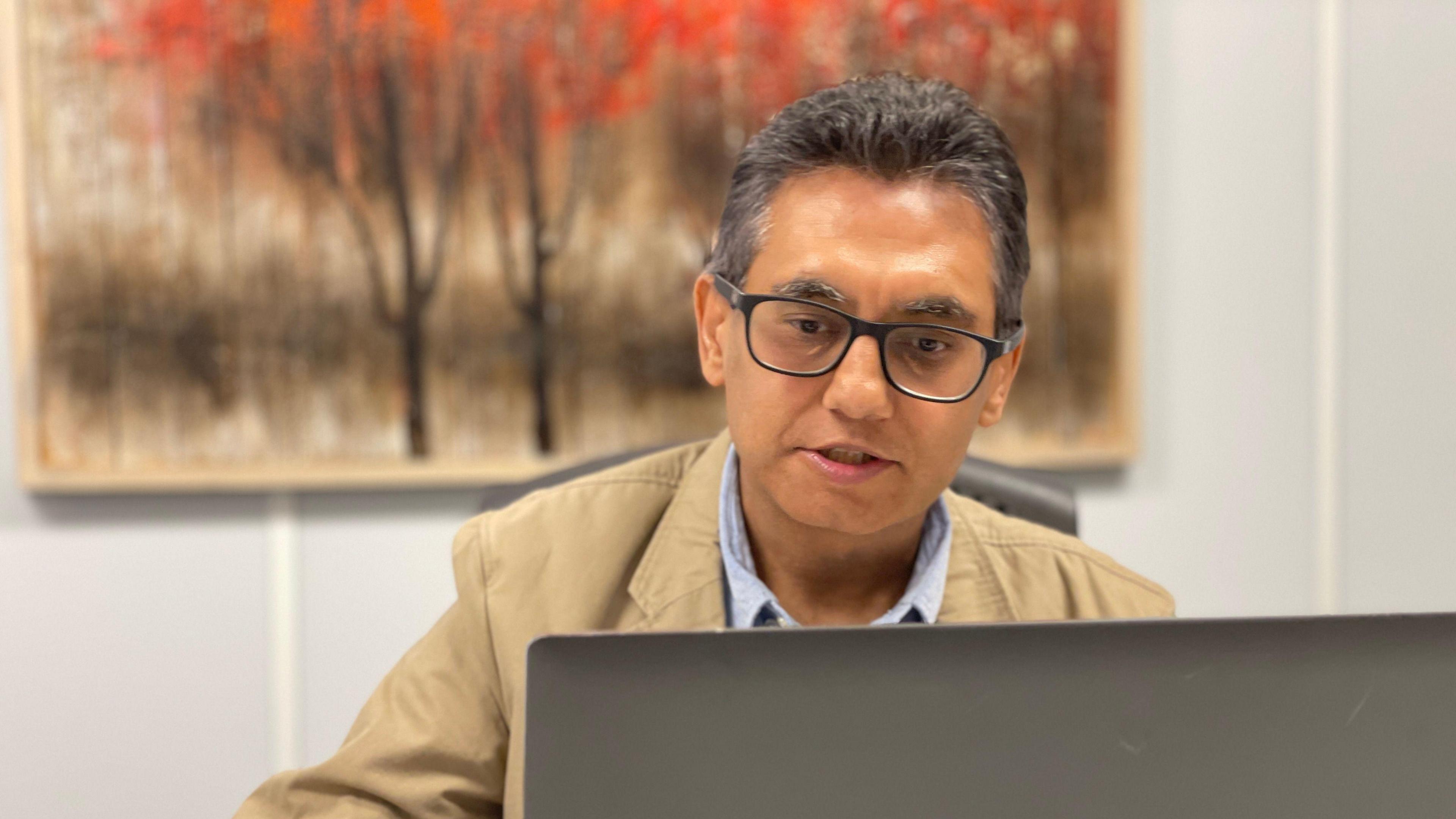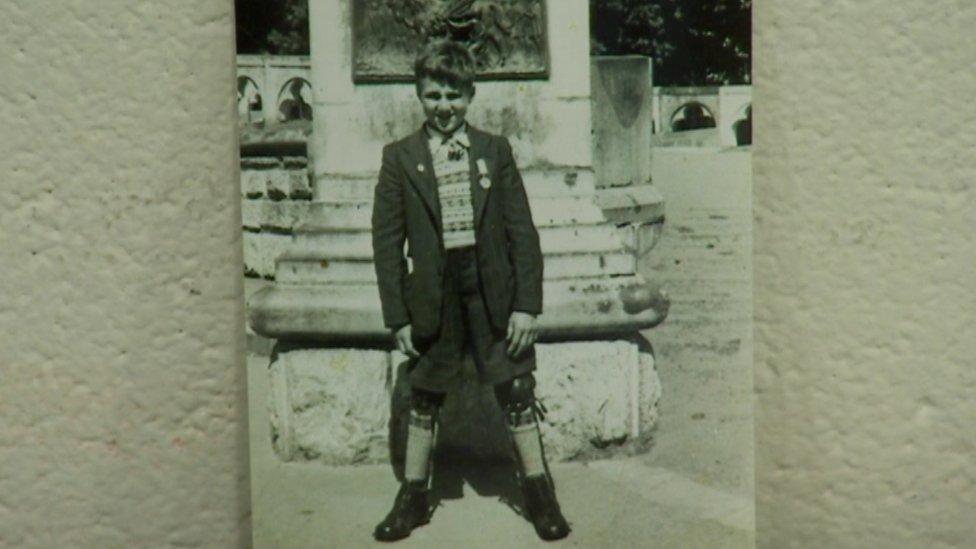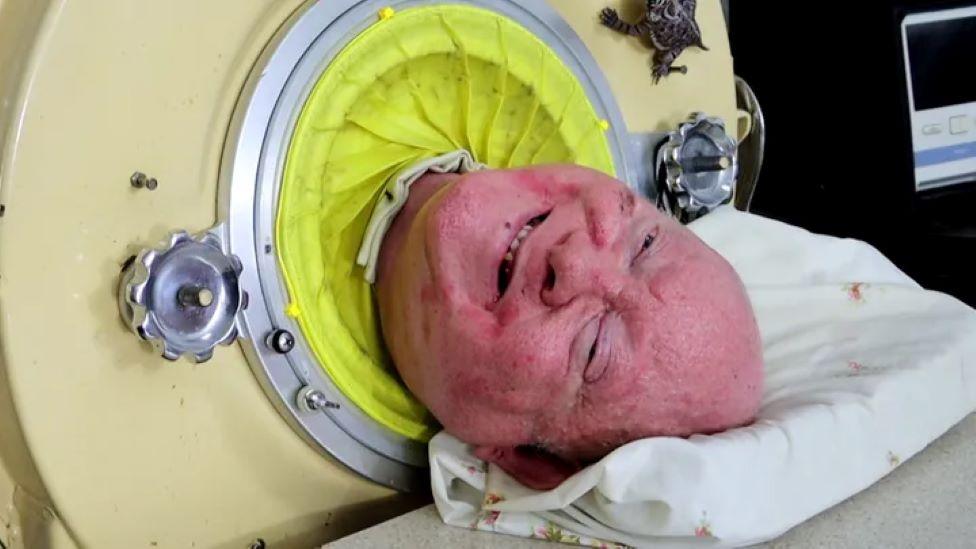Concerns over doctors ignoring effects of polio

Susan Glyn caught polio when she was six years old and now walks with a pronounced limp.
- Published
A woman who contracted polio as a child says her doctors "never mention" the disease despite the devastating impact it is having on her health.
Sue Glyn, 72, aired her concerns as a charity called for health professionals to better understand and care for polio survivors.
The British Polio Fellowship (BPF) has launched a "pathway" to outline how good treatment, care and support can be given to people living with disabilities caused by polio.
It is estimated at least 47,000 people in the UK are living with the late effects of polio.
Ms Glyn, from Felpham, West Sussex, has a withered right leg and walks with a significant limp.
She says that when she speaks to healthcare professionals "they never mention the fact that I've had polio".
"Most of my friends go dancing, or walking or do sports and I can't do any of that," she said.
She added that doctors "don't really comment on it".
"It's like it's not there, and yet to me it's very much there," she added.
Over 76,000 cases of polio were recorded between 1932 and 1962,
This number dropped significantly after a highly-effective vaccine was introduced in 1956. Polio was eradicated in the UK, in the 1980s.
Polio survivors were left with varying levels of disability such as paralysis, a shortened or withered arm or leg, sleeping or breathing issues, or twisted and bent spine.

Kripen Dhrona, CEO at the BPF, says 'poor levels of care' have been reported
Kripen Dhrona, the CEO at the BPF, said: “For many years polio survivors have reported delays in diagnosis, a lack of awareness by healthcare professionals of the late effects of polio and post-polio syndrome and poor levels of care beyond specialist centres."
He said the pathway should enable healthcare professionals to "provide more effective care with earlier diagnosis, improved treatment, and better outcomes".
Related topics
- Published13 April 2017

- Published13 March 2024
